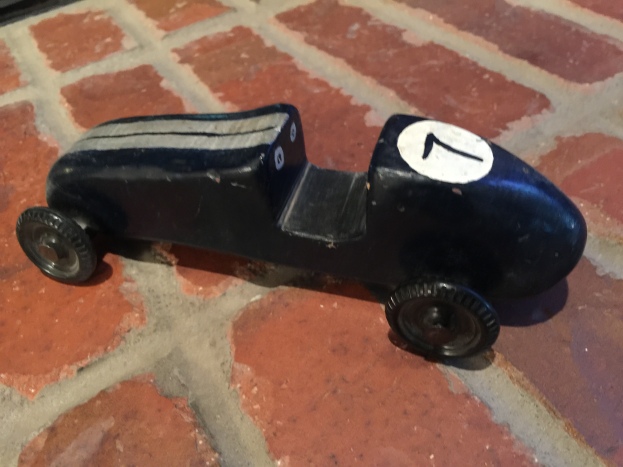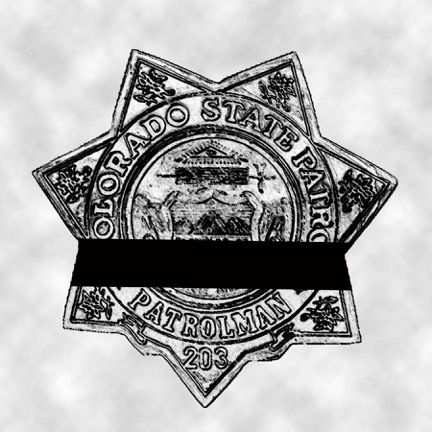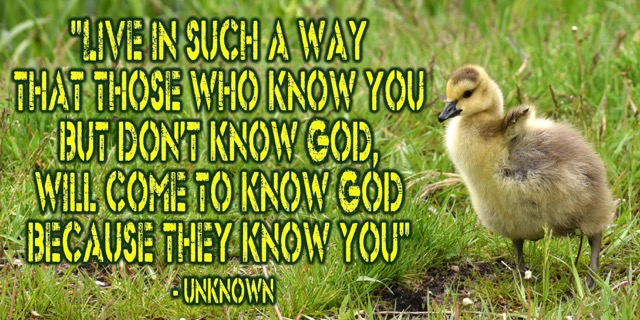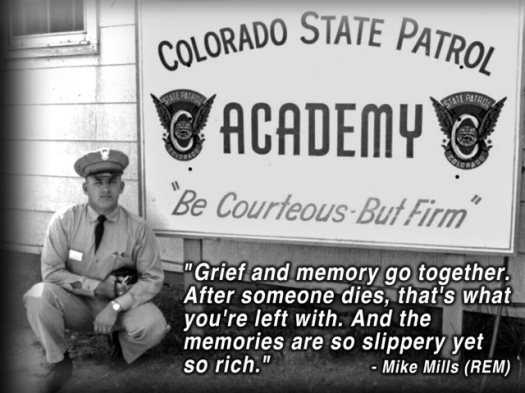
Social Media, Fox News, and CNN did not exist at the time my dad was abducted and murder. Nonetheless, with limited knowledge of what had happened and the murderers still at large, this was extremely dramatic news, even for a metropolitan area the size of Denver. I do not remember the first news reporter coming to the house, Mom remembers someone came to our front door within an hour of our notification and they were politely asked to leave. Of course as anyone that has seen these events play out today on television or on the internet knows, this does not end until someone gets a story.
This leads into one of my next memories, the memory of lights, cameras, a reporter, and a microphone all in our house focused on Mom. This was completely foreign to me, I had never known anyone that had ever been on television, let alone having someone in our house to interview Mom for television. I remember wanting to watch to make sure Mom was safe and okay. I knew this was all still very emotional for Mom and I wanted to protect her, even if I had no idea how I could do that. This may be why I have always been wary of the media, circumspect of their motives. Sensing my apprehension, someone quietly ushered me down stairs to our basement.
The television crew must have wanted to film us kids too. Mom was protective of us kids and I knew I did not want anything to do with talking to them on camera. I recall the camera crew came down stairs where I had been taken to play pool to keep me busy and out of the way. The camera crew decided to add a shot of me making a pool shot on Dad’s new pool table. As I was lining up the shot, all I could think about was not scratching the felt. Even at that moment, I could still hear my dad’s voice telling to me to in a stern voice to be careful with the felt.
On my first try I was nervous and I shot the cue ball straight off the pool table. I was so embarrassed as everyone scrambled to find the cue ball and someone set it back up on the pool table so I could have another try. As I recall I made the second shot in the corner pocket, seems like it was the yellow ball, the nine or one ball. Best of all, the cue ball stayed on the pool table and I did not leave a mark on the felt. I was so relieved to be done with my only time on television.
It seems like things were happening so fast. Everything was a blur with more people than I ever had seen coming and going in an endless stream of humanity to and from our home. Mom was busy with so many details so there was a continuous line of faceless people that us three kids were handed off to so Mom could deal with the stressful decisions that had to be made. During this blur of slight memories I only have only a single clear memory of the mortuary as Mom was doing her best to protect us from everything that was going on.
In this memory I was in a car parked in front of a building that seems to have been the mortuary when Mom ask me if I wanted to see dad to say goodbye. Strangely, this is not one of my more vivid memories as it is not something I have never felt was that important to me. Mom felt I was the only one of us kids old enough to make this decision for myself and while I appreciate the fact that she gave me the opportunity, I had no interest in seeing the lifeless body of Dad to add to my memories of him. My life was full of memories of Dad full of life and that was how I wanted to remember him. I wanted to remember him how he had lived his life, not how he had died, so I told Mom I did not want to go into the mortuary to see Dad, that I did not need to say goodbye.
I was interested to see that in 2010, the University of Oxford interviewed eighty bereaved relatives in an effort to determine if it was appropriate to encourage bereaved relatives to view the body after a traumatic death. According to their research, the answer varies from each individual, so my decision that was right for me and yet may not be the best thing for someone else:
“While viewing the body matters for some people, others felt that it might interfere with their memory of the living person…Professionals need to be sensitive to the different needs and preferences of people bereaved by traumatic death and to the social, familial, cultural, and legal context of the death…Some people may see the dead body as an empty shell, but others keep a bond with the social identity of the person, and they may see the body as continuing to harbour a spirit or at least some “lingering energy.” The language used by people who have been bereaved offers a powerful clue to the nature of their sense of relationship with the dead body. We therefore encourage professionals to pay attention to how family members refer to the body: if they talk about it by name or use a personal pronoun this should alert clinicians to the continuing sense of social bond, and it would be advisable to follow suit rather than speak of the “body,” “remains,” or “deceased” and risk offense.”[1]
My next vivid memory must have taken place later that evening. I remember I was in our bathroom taking a warm bath the night before Dad’s “Line-of-Duty” funeral at a church in Longmont. It was an uncomfortable feeling taking a bath with so many people in the house at the same time. As I was cleaning myself I began to notice red blotches were beginning to appear on my stomach, arms, and legs. The more I tried to wash my skin, the more they itched, and more and more were emerging all over of my body.
At this point I was becoming alarmed! I had never seen anything like this before and had no idea what was happening to me. Like any young child that thinks they may be sick, I called out for my mom to come to the bathroom. Mom came in and thought it was the hives due to the stress of everything we were all going through. I recall that she had someone else look at me, which was even more horrifying, and they thought it could be the chicken pox. Since chicken pox are so contagious, Mom decided to take me to see the doctor the next morning before dad’s “Line-of-Duty” funeral, adding even more stress to an already incredibly stressful day for her.
I remember I was feeling miserable and I was trying my best not to cause Mom any more trouble as I knew the funeral was going to be very difficult on her. I do not know if it was the stress of being sick, my concern about Mom, my decision to not cry, the funeral itself, or most likely a combination of all of them. Whatever the reason, I have almost no recollection of anything that took place the day of Dad’s “Line-of-Duty” funeral. Most of what I know about this day is what I have learned from others.
According to Mom, early the next morning she was amazingly able to get me into see the doctor. The doctor took one quick look at me and told her I did not have hives and confirmed her fear that I did indeed had the highly contagious chicken pox. Mom asked the doctor what she was suppose to do, the funeral was that afternoon and there were so many people in town that would be stopping by to offer their condolences. The doctor realized contagious or not, there really were no options so he suggested that Mom cover me up the best she could and not say anything to anyone about my having the chicken pox. Mom felt terrible as she knew this was not right, but with only a few hours she decided to follow the doctors advice pray that God would protect everyone from the potential exposure.
With all this going on, Mom had to make all the final decisions about a funeral she thought she would not have to think about for decades. Like most people their age, my parents had not spent much time at all thinking about the fact their lives would end someday, let alone what they wanted done when that time came. About the only thing Dad had ever said to Mom was that he wanted to be buried in Grand Junction and he did not like the cemetery where his dad was buried. Based on this information, Mom decided to have Dad buried the at the same cemetery in Grand Junction where her brother was buried. This present a problem as Grand Junction was about 250 miles from where Dad had lived and worked for the past five years.
Mom never felt there was any choice, that Dad deserved to have a “Line-of-Duty” funeral service and it needed to be close enough to where Dad lived and worked so the people he lived and worked with could attend. So Mom decided to have two separate services, with the “Line-of-Duty” funeral service in Longmont where we had attended church and the graveside service in Grand Junction. Since our church was too small, arrangements were made to have the “Line-of-Duty” funeral service nearby at Bethel Temple at 1:00 pm on December 31, the last day of the year. The graveside service would be in Grand Junction the following day.
Most “Line-of-Duty” funerals have a slow procession following the service lead by the departments motorcycle escort preceding the hearse and followed next by one or two vehicles with the family. Following the family is generally a multitude of law enforcement vehicles representing various departments, fire trucks, and ambulances, all with lights flashing in silence. Since the graveside service was in Grand Junction, it was decided that the procession would proceed the “Line-of-Duty” funeral in Longmont escorting the hearse to the church. Curiously, no one can recall where the procession started, though it must have taken over ten miles to get to the church. As mom thought back to us three kids riding in a limousine, she recalled she had never seen so many flashing lights and it felt as though the procession lasted an eternity.
I am astonished that not only did I not have the slightest recollection of what must have been such a powerful moment from my past, it had never even occurred to me that there could have even been a procession as part of the “Line-of-Duty” funeral in Longmont. It was not until after I had attended a “Line-of-Duty” funeral in December 2015 while I happened to be working on this section of this book that I even thought to asked Mom if there had been a procession as part of the “Line-of-Duty” funeral for Dad. I was dumbfounded as Mom recounted the details of the long procession that not only took place, it was the only time in my life that I have gone for a ride in a limousine, and it was right out in front of hundreds of flashing lights.
I was just stunned that it had never even occurred to me to ask Mom about this, it simply never crossed my mind. I had always just assumed if there had been a procession, it just had to have taken place in Grand Junction on the way to the graveside service. I had thought this would account for why I would not have any memory of it as I did not attend the graveside service due to my having the chicken pox. Memories are such a curious thing and even more than forty years later I can no more explain how or why I can remember some things so clearly and yet have no recollection of others, particularly as I seem to remember the most painful memories so vividly.
Inexplicably, I do not even remember seeing a procession for a “Line-of-Duty” funeral until about six months before I secured a position in federal law enforcement. It had been almost 15 years since Dad had been murdered when I happened to drive by the procession of law enforcement vehicles, fire trucks, and ambulances following a “Line-of-Duty” funeral for a Colorado State Trooper. I still recall how stunned I was as I momentarily experienced a split second of a flash of white emotion which was gone in almost the same instance. Curiously, I have gone on to attend numerous “Line-of-Duty” funerals both as an agent and a representative of C.O.P.S. and I have never again had a sensation anything like this.
The “Line-of-Duty” funeral for Dad in Longmont was attended by over 1,600 family, friends, co-workers, and fellow law enforcement officers. This included Governor John D. Vanderhoof and his wife. As this was far too many for Bethel Temple, there was no doubt a large number of officers that had to remain in formation outside the church on this extremely cold wintry December afternoon where the temperature never made it above sixteen degrees Fahrenheit.
I do not recall arriving at the church or the Honor Guard carefully carrying the casket to the front of the church. It is when the casket has been placed in front of the church adorn by the Colorado State flag that my memory flashes back to life. I can still see the flag as it covered the casket as I found it strangely fascinating and confusing both at the same time. I believe this may have been the first time I had seen a flag covering a casket at a funeral.
I remember struggling to stay still. I did not want to embarrass Mom, yet the urge to itch and scratch were unbearable. Not to mention the fact that I felt just plain miserable. Despite my best efforts, I was losing the battle and I just could not sit still. So as if on cue, one of my oldest cousins quietly guided me up the aisle and out of the sanctuary for the remainder of the service. As the last great honor was paid to Dad, I sat miserably rubbing and scratching missing it all in an empty foyer of the church. I did not get to hear our pastor state Dad was “probably the most moral person I have ever know” or the Chief of the Colorado State Patrol assert dad’s “moral integrity was absolutely impeccable”. This was one of the most frustrating memories I have. To this day I hate that fact that I was not there for my mom, for my sister, or my brother.
Again, my memory goes blank and I do not recall anything that happened after the “Line-of-Duty” funeral service ended. According to paper clipping Mom kept, of the 1,200 law enforcement officers from the 20-25 different agencies that attended dad’s funeral, 500 stood at attention in formation in ten degree weather as the casket was carried from the church to the hearse followed by our family after the service. This is one memory I do wish I could recall. I think back to the day God guided me to attend the “Line-of-Duty” funeral of the Denver Police Officer and believe it is not an accident that God would choose this moment, one that mirrored a blank space in my memory, to reach out to me regarding the meaning of why these men braved the cold to stand the post to honor Dad and our family (see my blog: “Why We Stand Together“).
My next memories are after we had been driven to the old Stapleton International Airport in Denver that same evening of the “Line-of-Duty” funeral. In a strange twist of fate Stapleton International Airport was located not far from where Dad had been murdered. Mom had made arrangements for us to fly from Denver to Grand Junction with the casket so we would not need to worry about traveling in the wintry conditions across the snow covered Colorado mountain passes.
When we arrived at the airport we were taken to a special holding room generally reserved for VIPs as we waited for the plane. They served us soda pop, nuts, and candies. My sister asked if I could have another Pepsi while we waited to get on the plane because I had a sore throat due to having chicken pox. Mom was horrified as no one was suppose to know as she was afraid they would not let me fly. Mercifully, no one said a word and everyone acted as though nothing had been said.
We were loaded on the plane prior to the other passengers. I remember sitting in the bluish-grey seats looking out the window wondering what it would be like to fly. This was all a lot to take in for someone that had never traveled on a commercial plane before. I had only been on a plane once before, when my uncle gave mom and I a ride on his Cessna plane before I had even turn two years old. I guess I was just too young to remember what must have been a very cool experience.
I do not remember much if anything about the rest of the trip to Grand Junction, just as I do not recall arriving at my grandparents house. There was a viewing at the mortuary in Grand Junction for family and friends the following day before the graveside service which was attended by an estimated 600 people. After everything we had been through Mom wisely had decided all of us kids would not attend the graveside service so we stayed at my grandparents house with a family friend which would lead to one of the most extraordinary events of my very young life (see my blog: “God is Always there for Us“).
Despite attended numerous “Line-of-Duty” funerals and memorials over the years nothing has ever trigger any latent memories I have neatly hidden away. Even as I write this blog, the memories that have been hidden away remain hidden without even the slightest recollection. As strange as this seems, it I have never sensed any pain or anguish over this, just curiosity of how and why I could have so many vivid detailed painful memories from this same time of my life and other memories are forever gone as though I was never there when they happened. Oddly, this has been the same since the time it all happened. Yet, I am amazed of the apparent impact the memories that are lost to me would have on shaping the character of the person I was to become.
As I now have the benefit of time that God has patiently given to me to find my way through this process with His help along with so many wonderful people He would send my way, I have come to understand just how fortunate I have been. Not only would I come to understand how God has been with me throughout my journey, I would appreciate that so many others have experienced far worse trials than I could ever imagine. I was blessed to realize early on that although I my had lost Dad, for nearly ten years I was blessed to have more positive loving experiences with Dad than many sons encounter in a lifetime. I may have lost Dad, yet I still had a loving Mom, maternal grandparents, and a maternal side of our family that was in many ways so close that my cousins at times felt like siblings and my aunts and uncle were more like surrogate parents.
Most of all I now realize how fortunate it is to know the pain and grief I so desperately wanted to avoid. Though nothing could have made me understand it at the time, the only way I could experience this amount of anguish, grief, and pain, was to have been loved that much and more by Dad. I was so incredibly fortunate to have a Dad that had both loved my mom and us kids, as in this way both my parents taught us kids how to love them too. This is why it hurt so much to lose Dad, as the amount of pain and grief we feel is close to the converse equivalent to the amount of love that we have received. This is why I have come to see that I was so incredibly fortunate as I know it shows what I had and that is where I maintain my focus.
“We matter, not because of our achievements but because we are loved by God and loved by the people around us. That love may not shield us from pain, death, and loss, but will make them more bearable, and that will be enough.”[2]
[1] Chapple, A., and S. Ziebland. 2010. “Viewing The Body After Bereavement Due To A Traumatic Death: Qualitative Study In The UK”. BMJ 340 (apr30 2): c2032-c2032. doi:10.1136/bmj.c2032.
[2] Kushner, Harold S. Living A Life That Matters. New York: A.A. Knopf, 2001. Print.
© C. Carpenter and Surviving December, 2017. Unauthorized use of this material without express written permission is strictly prohibited.
Spread the word - Share this blog with family and friends:










You must be logged in to post a comment.